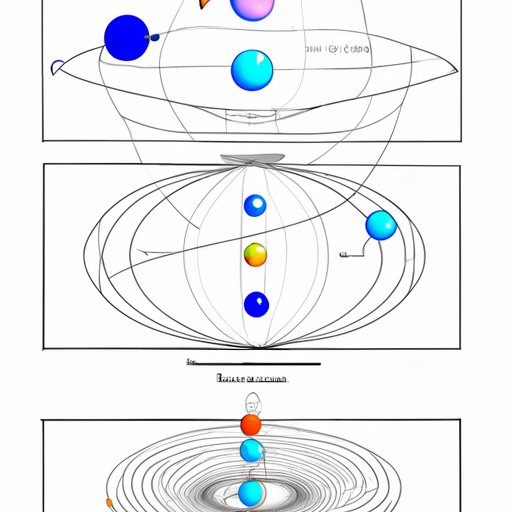
Understanding Physical Law: The Science Behind How Our World Works
Have you ever wondered why objects fall towards the earth, or why a moving car eventually comes to a stop? Physical Law is the set of fundamental rules that govern the behavior of the universe. It helps us understand how everything in the universe, from the tiniest particles to massive systems such as galaxies, works. Understanding Physical Law is essential for many scientific fields and industries and can also help us make better decisions in life. This article will explore the concept of Physical Law, its history, and how it affects our daily lives.
The Fundamental Rules of the Universe: Understanding Physical Law
Physical Law refers to the set of fundamental rules that govern the behavior of the universe. These rules are based on the observations and experiments of scientists over the years, and they help us understand how everything in the universe works. Physical Law can be seen in action in various phenomena, such as the way objects move, the behavior of light, and the interactions between particles.
For example, the law of gravity, which states that all objects with mass are attracted to each other, explains why objects fall towards the earth and why planets orbit stars. Similarly, the laws of motion, which describe how objects move, are essential in the study of mechanics. Understanding Physical Law is crucial in physics because it helps us explain natural phenomena and predict the behavior of objects under different conditions. Physical Law is also applicable to other scientific fields such as chemistry, biology, and astronomy.
Physical Law: The Science Behind How Our World Works
The study of Physical Law dates back to ancient times, but it became a more formalized discipline with the contributions of scientists such as Galileo Galilei, Isaac Newton, and Albert Einstein. Newton’s three laws of motion and his law of universal gravitation laid the foundation for mechanics and the study of motion, while Einstein’s Theory of Relativity revolutionized our understanding of space and time.
Physical Law has played a significant role in the development of various technologies, such as the understanding of electromagnetic waves that led to the invention of radio, television, and the internet, as well as the laws of thermodynamics that are the basis of engines and refrigeration systems.
Unraveling the Mysteries of Physical Law: A Look at Gravity, Motion, and Energy
Gravity is one of the most well-known concepts of Physical Law. It is the force that pulls objects towards the earth, and it also governs the motions of planets and stars. Scientists believe that gravity is caused by invisible particles called gravitons that interact with the mass of objects. The study of gravity has led to many important discoveries, such as the ability to calculate the mass of celestial bodies and understand the structure of the universe.
Motion is also an essential concept of Physical Law. Objects in motion exhibit behaviors such as acceleration and deceleration and can be affected by various factors such as friction, mass, and external forces. Understanding the laws of motion allows us to explain phenomena such as the movement of vehicles, projectiles, and celestial bodies. Energy, which is the ability to do work, is also an essential concept of Physical Law. Different types of energy, such as potential energy and kinetic energy, are related to the motion of objects and the interactions between particles.
The Importance of Understanding Physical Law: How it Affects Everyday Life
Physical Law affects our everyday lives in many ways. For example, understanding the principles of thermodynamics can help us design more efficient engines and appliances that use less energy. Understanding the laws of motion can help us drive safely by predicting the way a car will move under different conditions. Understanding the behavior of light can help us design better cameras and telescopes, while understanding the properties of materials can help us design stronger and more durable structures.
Physical Law is also essential in various industries such as engineering, medicine, and transportation. Engineers use Physical Law to design buildings, bridges, and transportation systems that are safe and reliable. Medical professionals use Physical Law to understand the behavior of cells and diagnose and treat diseases. Physicists and chemists use Physical Law to understand the properties of materials and develop new technologies.
Conclusion
Physical Law is the foundation of our understanding of the universe. It has helped us explain natural phenomena, develop technologies, and make better decisions in life. By continuing to learn and understand Physical Law, we can gain a better understanding of how the world works and make more informed decisions in all aspects of life. Whether you are a student, a scientist, or a curious individual, there is always more to explore in the world of Physical Law.




